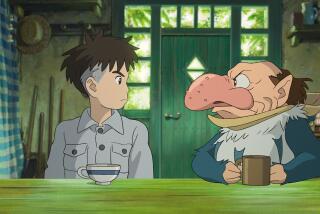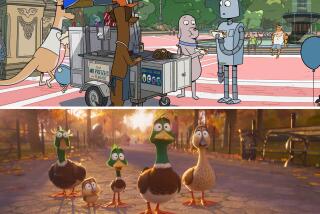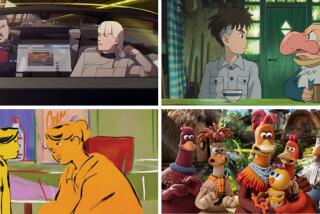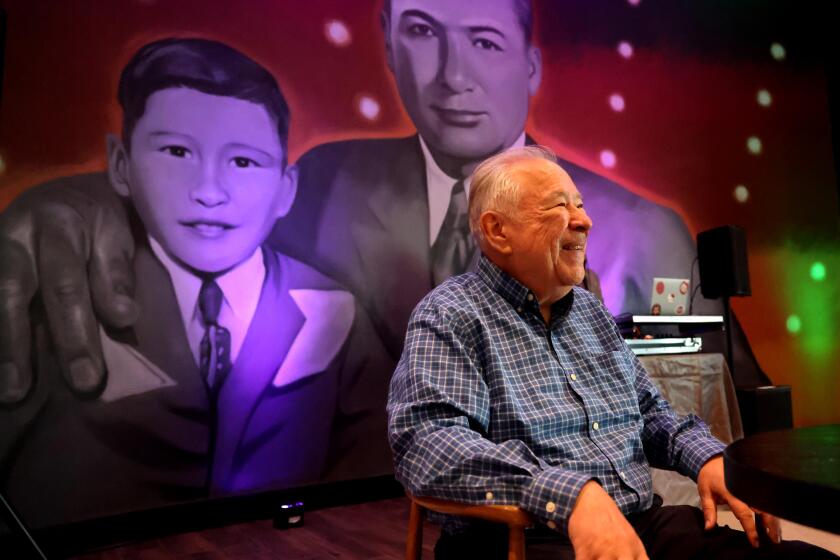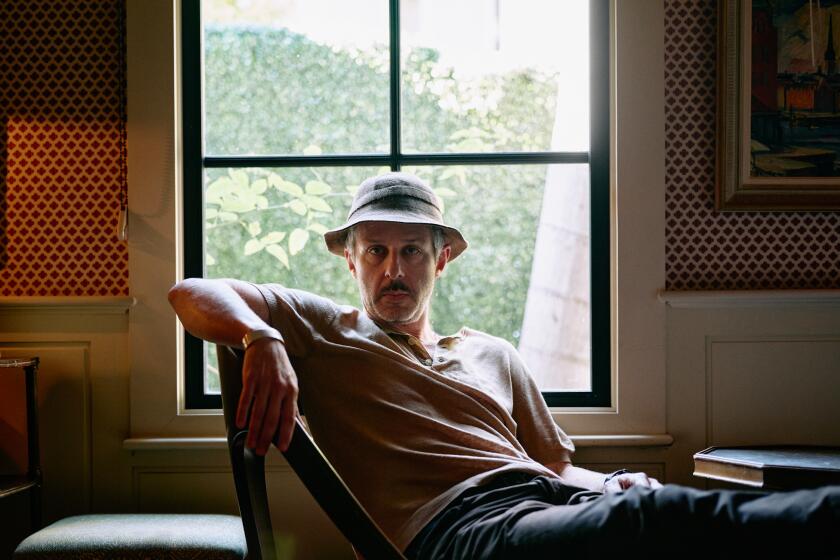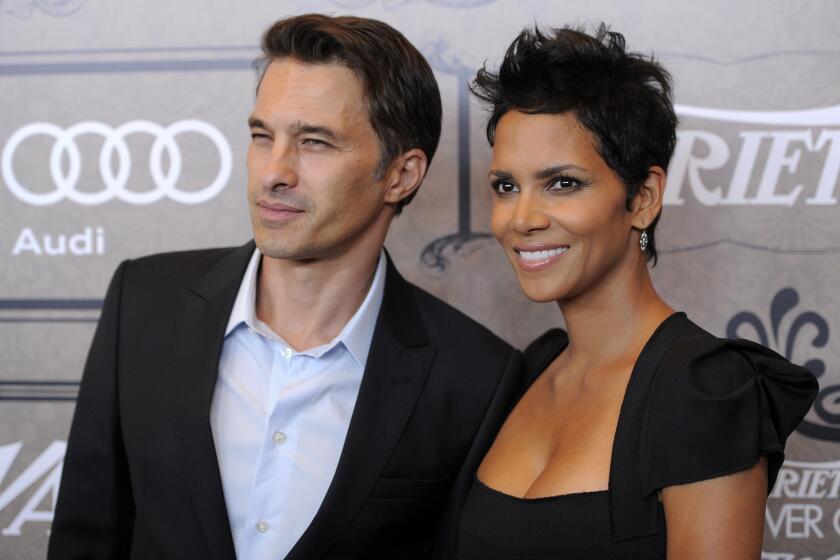Morph Fun for Fans of Gromit and Ginger
Before “Chicken Run,” before the Oscar-winning “Wallace and Gromit” shorts, the British studio Aardman Animations was known for offbeat, experimental films that played at international festivals--and for the misadventures of a little terra cotta figure named Morph.
Created in 1976 for the BBC series “Take Hart,” the stop-motion character would interact with host Tony Hart by morphing, or transforming himself, into various animals or objects. He proved so popular that he was given his own series of five-minute episodes, “The Adventures of Morph” (1981-83).
CBS/Fox Video, in conjunction with the BBC, has released three cassettes of “The Morph Files,” and parents in search of fresh, imaginative entertainment for young children, as well as animation fans, will enjoy these delightful little films.
“The Morph Files” are refreshingly free of the smarmy didacticism Americans impose on children’s entertainment. Morph is a bit of a troublemaker and rarely does what he’s supposed to. His best friend, Chas, is even more rambunctious, and the two of them cause havoc on the tabletop that serves as their home.
When Morph eats too much ice cream in “Skiing” (Volume 2), he freezes and shatters. Chas sadly spoons the fragments into the ice cream dish--only to have Morph reassemble and complain about being stirred.
The pair get so involved with their plants in “Gardening” (Volume 1), that they fail to notice the roots have penetrated the tabletop and are dripping onto their friends who live below.
When faced with a problem he can’t solve (or pretend to solve), Morph consults his computer, a fanciful construction of pink and blue clay with a keyboard from an old manual typewriter. Simple, two-dimensional computer animation appears on its screen, providing an effective visual contrast to the three-dimensional clay figures. But when Chas plays Space Invaders on the computer in “Gobble D. Gook” (Volume 2), Morph inadvertently switches on the printer--and a little green alien pops out.
The characters don’t talk, although they make funny squeaks and noises to indicate their feelings. Neil Morrissey, the quietly sardonic narrator, describes the action and comments on it. While Morph and Chas argue over whether they really need to begin exercising, Morrissey dismisses them as “a couple of lazy old porksters.”
The animation of the clay figures is simpler than the justly celebrated “Wallace and Gromit” shorts, but the Aardman animators suggest a wide range of feeling with simple gestures and mime. And there’s some noteworthy animation in “Babysitting” (Volume 1), when Morph, Chas and their friends put on a circus to distract a fussy infant. Chas attempts to balance on a rolling cylinder while Morph walks a tightrope, and the artists make these tricky movements look convincing. It would take years of practice and experimentation before the animators could create the subtle, nuanced motions in “The Wrong Trousers,” but they were obviously learning, and learning fast.
The original five-minute segments have been re-cut and combined into 10-minute episodes that parents and young children could happily share as visual bedtime stories. Their older siblings might be inspired by these understated films to try doing simple clay animation themselves.
More to Read
Only good movies
Get the Indie Focus newsletter, Mark Olsen's weekly guide to the world of cinema.
You may occasionally receive promotional content from the Los Angeles Times.
